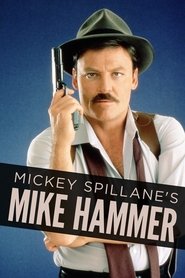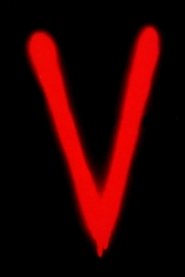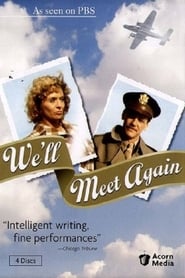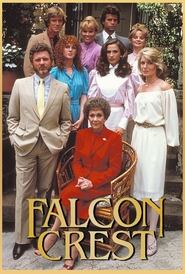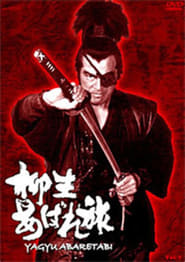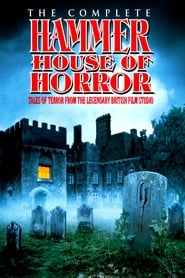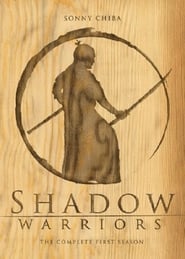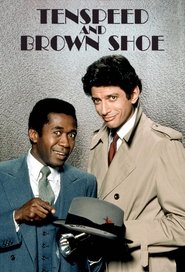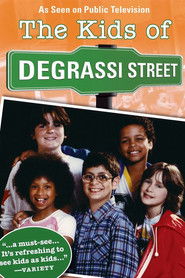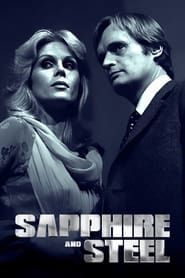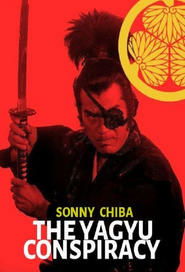New Drama TV Series on Plex - Page 21
-
宮本武蔵
1984
宮本武蔵
1984
-
Mike Hammer
1984
Mike Hammer
1984
star 6.5Private detective Mike Hammer hunts down criminals on the mean streets of New York City. -
Diana
1984
Diana
1984
star 5The very different lives of Jan Leigh, a poor but studious young country lad, and Diana Gayelorde-Sutton, the equally single minded daughter of a rich landowner, from the 1920s through to post-war Britain. -
Cat's Eye
1983
Cat's Eye
1983
star 6.9Cat's Eye is the most notorious group of art thieves in Japan. No one knows their identities, but for most of Tokyo, the mystery only heightens their allure. -
V
1983
V
1983
star 7.7Fifty spaceships, each three miles across, hover ominously above Earth's major cities. The Visitors that emerge are humanlike in appearance and extend the hand of friendship. Our planet's resources are just what these aliens need to survive. And for its future survival, unsuspecting humankind will need... a miracle! -
Rejseholdet
1983
-
Legend of the Condor Heroes
1983
star 8The Legend of the Condor Heroes is a Hong Kong television series adapted from Louis Cha's novel of the same title. It was first broadcast on TVB Jade in Hong Kong in 1983. The 59 episodes long series is divided into three parts. This 1983 version is considered by many to be a classic television adaptation of the novel and features the breakthrough role of Barbara Yung, who played Huang Rong. -
Tucker's Witch
1982
Tucker's Witch
1982
star 4Rick and Amanda Tucker own and operate their private detective agency in Laurel Canyon in Los Angeles. Amanda's psychic powers become an asset in solving cases but also tend to get the spouses into various troubles. -
We'll Meet Again
1982
We'll Meet Again
1982
star 5.5It's 1943 and the American Air Force has come to Market Weatherby, a small East Anglian town. The war weary British and the brash American GIs sometimes clash, but friendships are also forged. -
Falcon Crest
1981
Falcon Crest
1981
star 5.5Falcon Crest is an American primetime television soap opera which aired on the CBS network for nine seasons, from December 4, 1981 to May 17, 1990. A total of 227 episodes were produced. The series revolves around the feuding factions of the wealthy Gioberti/Channing family in the Californian wine industry. Jane Wyman starred as Angela Channing, the tyrannical matriarch of the Falcon Crest Winery, alongside Robert Foxworth as Chase Gioberti, Angela's nephew who returns to Falcon Crest following the death of his father. The series was set in the fictitious Tuscany Valley northeast of San Francisco. -
Brideshead Revisited
1981
Brideshead Revisited
1981
star 7.9Befriended by aristocrat Sebastian Flyte, Oxford student Charles Ryder finds that the power and privilege experienced by the family is seductive. On a visit to the ancestral home, Brideshead, he falls in love with his friend's sister, Julia. However, as his ties to the Flytes deepen, Ryder finds himself at odds with their strong Roman Catholicism. -
Yagyu's Secret Quest
1980
Yagyu's Secret Quest
1980
Yagyu Abaretabi is the tale of members of the Yagyu Clan and their travels all around the nation seeking to fight injustice and corruption... and there are plenty of surprises along the way. -
Hammer House of Horror
1980
star 7.1Anthology series, in which each self-contained episode featured a different kind of horror. These varied from witches, werewolves, ghosts, devil worship and voodoo, but also included non-supernatural horror themes such as cannibalism, confinement and serial killers. -
Shadow Warriors
1980
Shadow Warriors
1980
star 8Shadow Warriors is a Japanese television jidaigeki show featuring Sonny Chiba that ran for four seasons in the early 1980s. Chiba played different ninja characters in each series. In the first series he played Hattori Hanzō III, in second one he played Tsuge Shinpachi, in the third one he played Tarao Hanzō, in the fourth series and in Bakumatsu Hen, he played Hattori Hanzō XV. In the 2003 direct-to-DVD series Shin Kage no Gundan he played Hattori Hanzō I. -
Tenspeed and Brown Shoe
1980
star 6.8Tenspeed and Brown Shoe is an American detective/comedy series originally broadcast by the ABC network between January and June 1980. The series was created and executive produced by Stephen J. Cannell. -
Knots Landing
1979
Knots Landing
1979
star 6.7The domestic adventures, misdeeds and everyday interactions of five families living on a cul-de-sac in a small California community. -
The Kids of Degrassi Street
1979
star 6.9The Kids of Degrassi Street is a Canadian children's TV show that aired from 1979 to 1986, and is the first in the Degrassi series, about the lives of a group of children living on Degrassi Street in Toronto, Canada. It grew out of four short films: Ida Makes a Movie, Cookie Goes to the Hospital, Irene Moves In and Noel Buys a Suit, which originally aired as after-school specials on CBC Television in 1979, 1980, 1981 and 1982, respectively. The show was acclaimed for its realistic depiction of every day children's lives and tribulations, and remains memorable to many Canadians because of this. Kids of Degrassi Street featured many of the same actors who would later appear on Degrassi Junior High and Degrassi High, including Stacie Mistysyn, Neil Hope, Anais Granofsky, Sarah Charlesworth and others. However, their character names and families were different, so this series cannot technically be seen as an immediate precursor to the later shows. -
The Rose of Versailles
1979
star 8.3Raised from birth as a man, the Lady Oscar commands the palace guards at Versailles in the years before the French Revolution. Her beauty and noble spirit make her a shining figure in the eyes of both men and women but she is torn between her chosen life of service and duty to class and country and her own heart and desires. She lives as a noble amidst the opulence of Versailles but her keen senses and compassion are not blinded to the poverty of the French people. -
Sapphire & Steel
1979
Sapphire & Steel
1979
star 7.4Sapphire & Steel is a British television science-fiction fantasy series starring David McCallum as Steel and Joanna Lumley as Sapphire. Produced by ATV, it ran from 1979 to 1982 on the ITV network. The series was created by Peter J. Hammond who conceived the programme under the working title The Time Menders, after a stay in an allegedly haunted castle. Hammond also wrote all the stories except for the fifth, which was co-written by Don Houghton and Anthony Read. None of the stories had onscreen titles, or any official titles assigned by the writers. The Region 1 Complete Series DVD release gives the titles "Escape Through a Crack in Time", "The Railway Station", "The Creature's Revenge", "The Man Without a Face", "Dr. McDee Must Die" and "The Trap", respectively. These titles have often been cited as having been created by science fiction magazine Time Screen. -
The Yagyu Conspiracy
1978
The Yagyu Conspiracy
1978
star 7It takes place at the time of the Shogunate rule with Shogun Hidetada and who will succeed Hidetada. A struggle for power between the family and the daimyos. Historically the Yagyu's have always been close to the Shogunate, and helped...
 Netflix
Netflix
 Amazon Prime Video
Amazon Prime Video
 Apple iTunes
Apple iTunes
 Apple TV Plus
Apple TV Plus
 Disney Plus
Disney Plus
 Google Play Movies
Google Play Movies
 Paramount Plus
Paramount Plus
 Hulu
Hulu
 HBO Max
HBO Max
 YouTube
YouTube
 fuboTV
fuboTV
 Peacock
Peacock
 Peacock Premium
Peacock Premium
 Amazon Video
Amazon Video
 The Roku Channel
The Roku Channel
 AMC+
AMC+
 Kocowa
Kocowa
 Hoopla
Hoopla
 The CW
The CW
 Vudu
Vudu
 Starz
Starz
 Showtime
Showtime
 PBS
PBS
 Pantaflix
Pantaflix
 FXNow
FXNow
 Tubi TV
Tubi TV
 Kanopy
Kanopy
 Comedy Central
Comedy Central
 Crunchyroll
Crunchyroll
 Microsoft Store
Microsoft Store
 Redbox
Redbox
 Sun Nxt
Sun Nxt
 ABC
ABC
 DIRECTV
DIRECTV
 Crackle
Crackle
 Fandor
Fandor
 Plex
Plex

